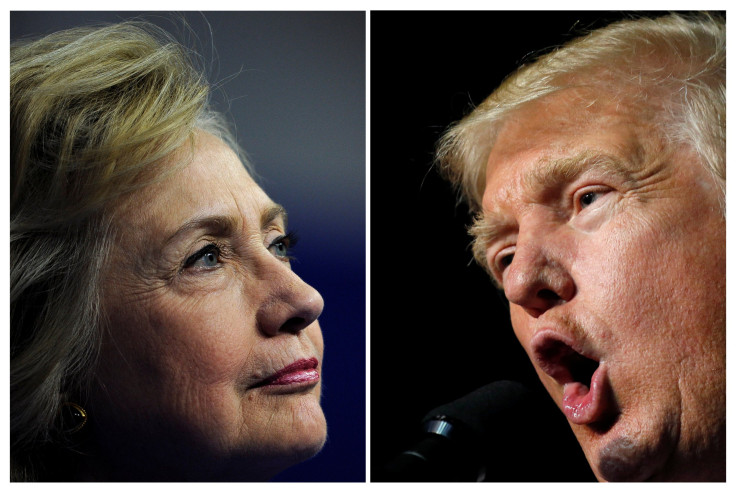What Is NAFTA? Donald Trump Attacks Clinton On Trade Deal In First Presidential Debate

Republican nominee Donald Trump went on the offensive in the first presidential debate with Democratic nominee Hillary Clinton, attacking the former New York senator for her support of NAFTA (North American Free Trade Agreement). Trump described the trade deal "as the worst trade deal ever signed."
The crux of NAFTA was to eliminate a majority of tariffs on products traded between the United States, Mexico, and Canada and have the tariffs gradually phased out. Trump's comments seemed to echo the claims of independent candidate Ross Perot, who used the phrase "giant sucking sound" going south of the border in the 1992 presidential debate.
The bill was introduced in 1990, with President George H. W. Bush, Canadian Prime Minister Brian Mulroney and Mexican President Carlos Salinas, spearheading the new agreement.
While Trump delivered a harsh rebuke of the deal, NAFTA actually passed with bipartisan support. The bill passed in the House of Representatives, 234-200, with 132 Republicans supporting the measure and 102 Democrats supporting it. It passed in the Senate, 61-38, with 34 Republicans and 27 Democrats supporting the deal. It was signed by President Bill Clinton on Dec. 8, 1993.
The bill has also been hailed by economists. In 2012, 41 of the world's top economists at the IGM Economic Experts Panel at the University of Chicago agreed that the gains to freer trade are much larger than any costs. Many have agreed that NAFTA's passage did not prompt huge job losses that many detractors had predicted.
"I'd say NAFTA was an overwhelming success," Sara Johnson, an economist told IHS Global Insight, told NPR.org in 2013. "There are strong, two-way trade flows now."
In the January/February issue of Foreign Affairs Magazine, NAFTA was praised for creating "what is today a $19 trillion regional market with some 470 million consumers. The U.S. Chamber of Commerce figures that some six million U.S. jobs depend on trade with Mexico and another eight million on trade with Canada."
© Copyright IBTimes 2024. All rights reserved.






















